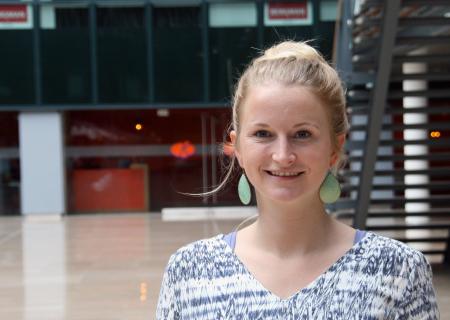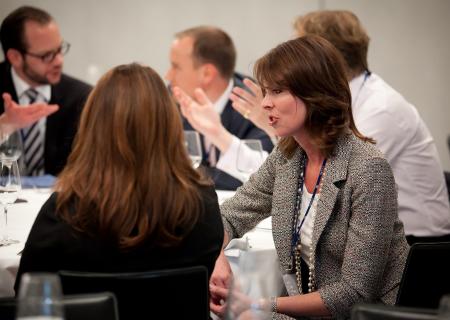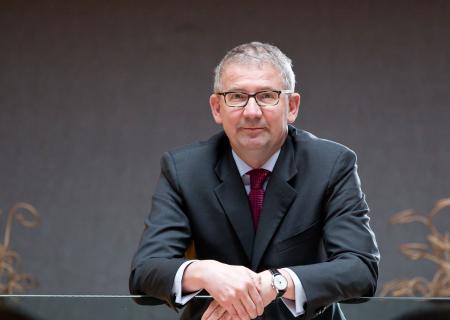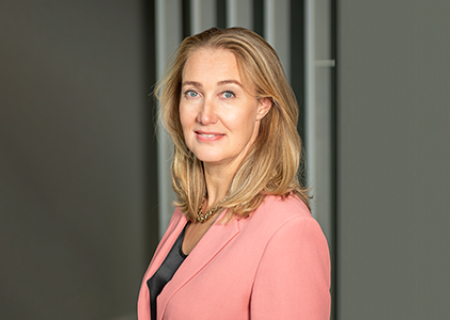Broad Thinking: Annual Conference Berlin 2014
High level speakers provide food for thought
A series of high level speakers provided members with food for thought as the industry gathered for the 2014 Annual Conference
The INREV Annual Conference is never short of insights and this year was no exception. The 420 delegates who gathered in Berlin won’t have been disappointed. There was some big thinking across a broad agenda ranging from geopolitics, to urbanisation, and real estate performance to philanthropy. There were many highlights to choose from.
How about this for an opening gambit? “Inflation is seen by China as an act of aggression.” It set the tone for a fascinating exposition of current international relations and macroeconomics by Dr Pippa Malmgren, Founder of DRPM and former special advisor to the White House. She spoke eloquently about the geopolitical forces that both underpin and influence the real estate industry, and explained why these should not be ignored in investment decisions.
Next year's Annual Conference will be held in Barcelona on 22 & 23 April 2015
Linking the argument about deflation versus inflation to the rise in tensions between emerging and industrialised economies, she pointed directly to the root of social unrest in a growing number of regions around the world. She highlighted the paradox of investors in markets where inflation equals social unrest, rapidly transferring capital to safe havens governed by the rule of law where Europe is top of the list. But, provocatively, she questioned whether Europe was viewed as a good target simply because it was safe, or because it delivered superior returns.

Dr Malmgren defined property as territory. With this thought she pointed to the need for investors to consider carefully the types of land in which they chose to invest. With food prices rising inexorably and the mounting differential between food prices in different economic regions contributing to wider potential tensions, she highlighted the significance of “rural productive land”. Some of this “territory”, she suggested, commanded higher values than areas of prime central London such as Mayfair. It was a fascinating and sobering start to two days of authoritative, incisive commentary and debate. And with elegant symmetry, the conference also ended with a presentation that had geopolitics at its core.
Jami Miscik, former Director for Intelligence at the CIA and President of Kissinger Associates, talked about increasing risks from the rise of the jihadist threat to a flourishing of nationalism driven by tough economic conditions. She homed in on Russia, asking: “Is Russia done?” And in response to a question from the floor about whether Vladimir Putin was weakened, she said: “If there is one man who doesn’t think he needs to re-make himself, Putin is it. He is certainly confident in his views.”
Is Europe a good target because it is safe or because it delivered superior returns?
Referring to the technology-driven “second industrial revolution”, she talked about the future impact on jobs and society as a whole. The next 20 years would, she said, witness a significant shift in work patterns with fewer people in work as they relinquished their jobs to robots. The inevitable consequence would be a considerable widening of the income and wealth gap leading to greater volatility and more populist movements rooted in extremism.
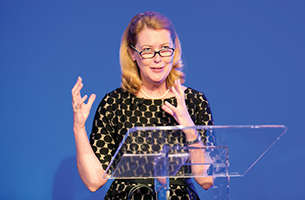
Miscik urged the audience to ensure that they continued to consider political risks carefully as part of the investment process, to stay informed and to talk about the key issues because solving geopolitical problems couldn’t be left solely to the politicians. She concluded that the real estate community, had an important role to play in “building the ties that bind.”
And, Putin, it seems, wasn’t the only one with firm opinions. Over the course of the two days delegates were periodically asked to respond to snap poll questions on various issues – some fairly weighty; others less so. The results were instructive. Nearly 83% identified deflation as opposed to inflation as the most significant risk factor for real estate investment. A substantial percentage at 45.5% believed that the volume of poor in Europe’s cities was largely because cities attracted poor people. And while 42.9% of respondents thought that Europe’s ageing population was positive for real estate investment, 72.7% identified that the next big conflict would focus on land and territory.
Harvard Professor Edward Glaeser picked up the urban poor theme when he laid out his vision for the “city of the future”. He expressed the view that a powerful relationship exists between population density and income, making city dwellers generally better off and happier than their rural counterparts. But added that, of course, Parisians and New Yorkers were “always unhappy.”
Further opinions surfaced in various panel debates covering topics that ranged from the strategies that work best for improving markets, to how to succeed in German real estate and whether investors are regaining faith in funds. Jeff Jacobson, Global CEO, LaSalle Investment Management, led one such panel discussion that focused on the top five issues affecting the industry. The five panellists shared a common view that there was indeed a recovery in real estate investment – a perspective that played to the overall conference theme: “Real estate is coming back to life”. There was consensus that funds are still in demand, especially for smaller investors with a desire to access real estate and diversify risk. But the panellists also highlighted the pressures suffered by fund managers overburdened with the mounting costs of regulation and compliance, and the consequent possibility of market consolidation.
There was more commentary about fund mangers when Professor Andrew Baum, Chairman of Property Funds Research, took to the stage toward the end of the second day. He offered some controversial theories. In his summary of the benefits of non-listed real estate investing, he explained that over a 12-year period, while one third of funds had added significant value, fund managers had not done the same on average. He went on to express the view that performance fees were inappropriate in many cases and that, in any event, alpha and leverage components should be disaggregated from performance fees.
He finished on a positive note for core non-listed real estate funds that, he said, still offered the best way to access real estate – especially for small investors. And real estate, in general, received unqualified support from Leon Bressler, Partner, Perella Weinberg Real Estate UK, who was interviewed by Financial Times columnist John Plender on the closing day. He said it added value and reduced risk, but that understanding investment risks was critical to success.
Alpha and leverage components should be disaggregated from performance fees.
Bressler offered very clear insights on different markets in Europe. Identifying that the Eurozone was likely to remain in a low growth, low interest environment for some time, he saw opportunities for Spain, albeit that these had already been “priced in” making it challenging to find assets.
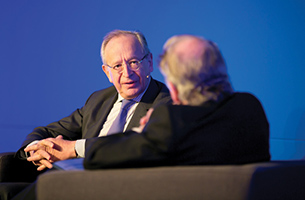
He was bullish about Germany with its stable economy stimulated by artificially low interest rates, and its strong social fabric. Transformation would hit France, he said, though this would be slow and difficult. And he spoke exuberantly about the strength of the UK, with London as the financial capital of Europe offering robust real estate markets in offices, residential and retail.
Asked whether there were things that kept him awake at night he quipped: “No. I try to stay awake during the day.” He ended by extolling the virtues of integrity and character and the importance of possessing social consciousness and a strong moral compass. These were, he said, qualities that should be applied by everyone, everyday.
Bressler’s inspiring remarks were a useful signpost to the thoughtful and thought-provoking tone that underscored another highly successful Annual Conference.
Next year's Annual Conference will be held in Barcelona on 22 & 23 April 2015. We look forward to seeing you there.




